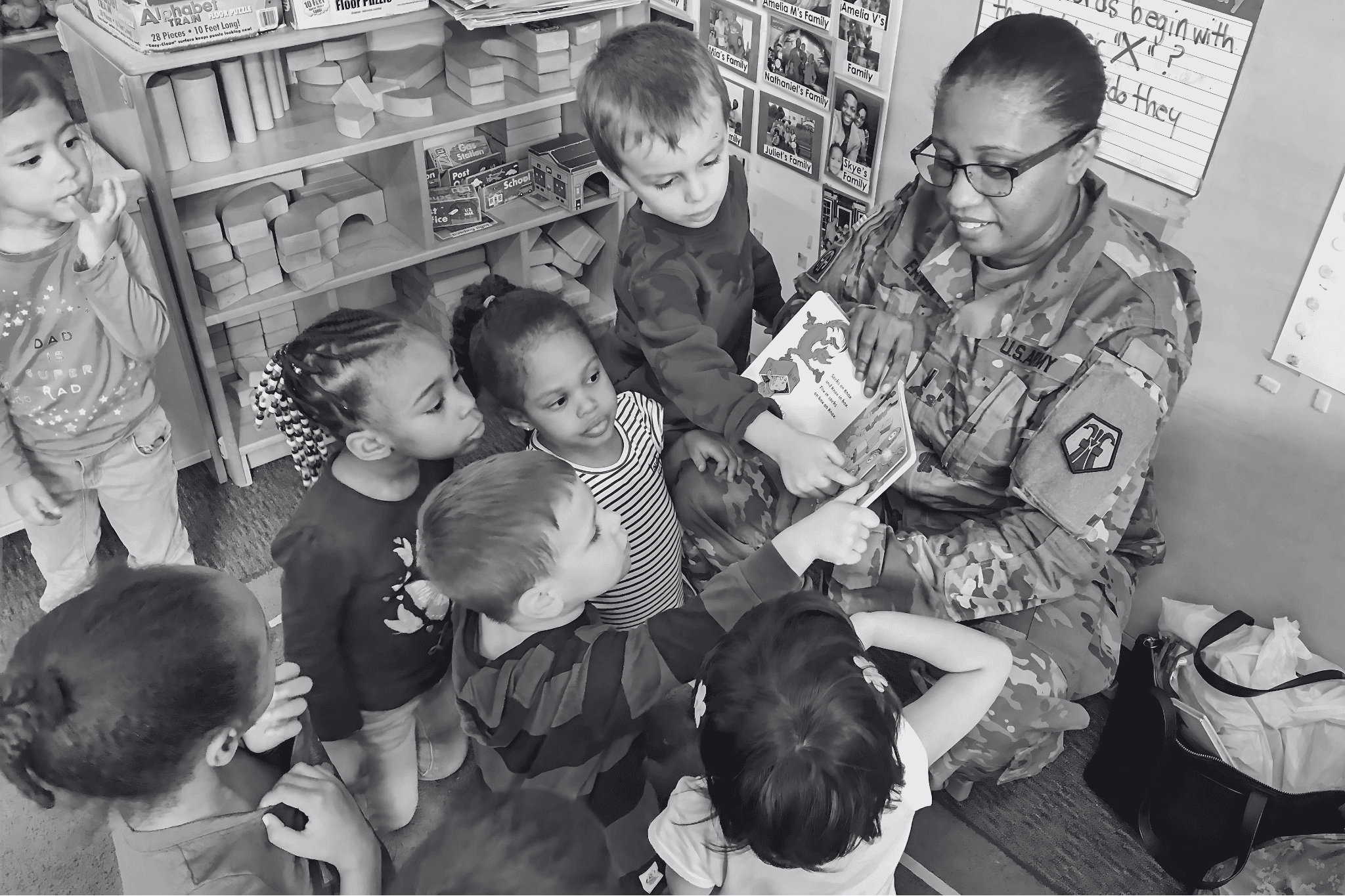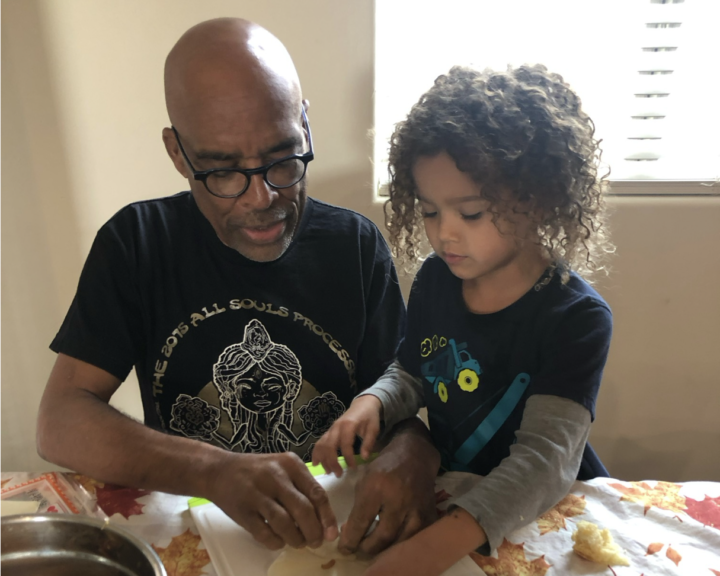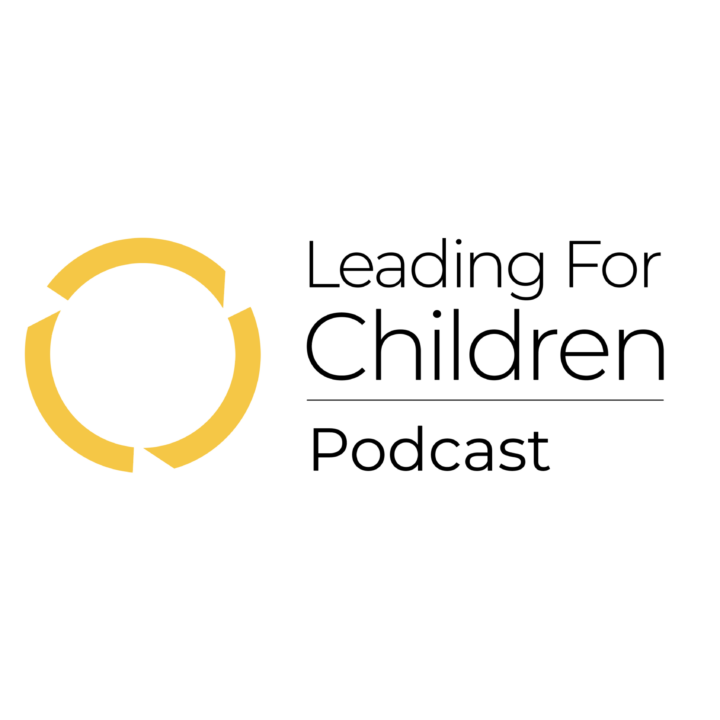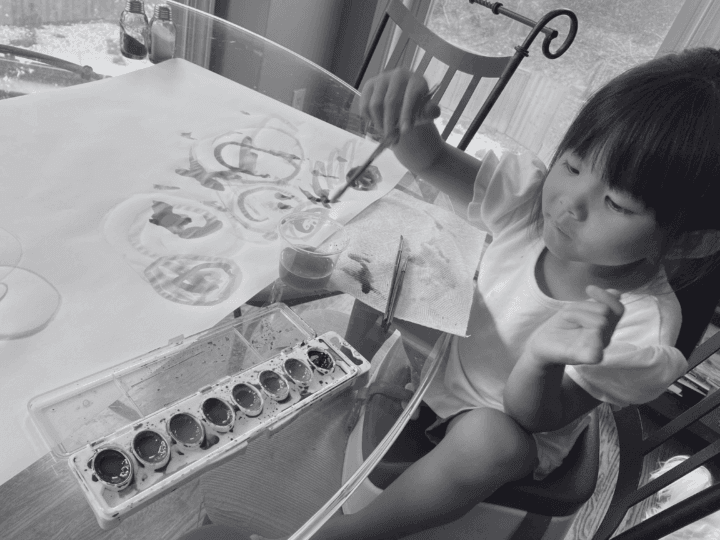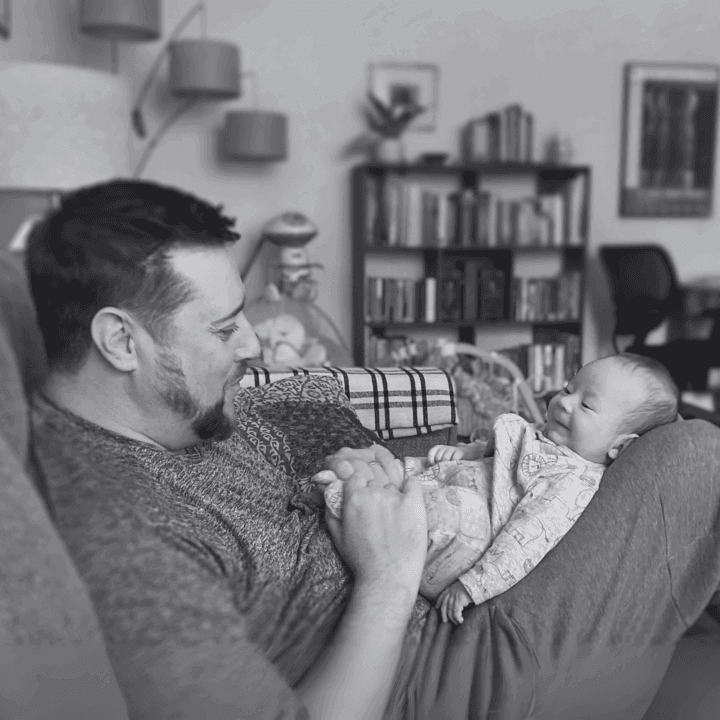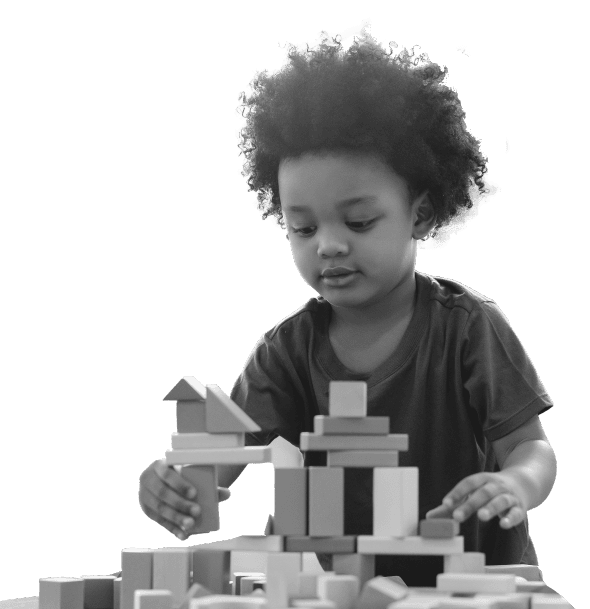This blog was written by Julia Connolly, LFC’s Development and Communications Associate
What does it mean to belong when your world is shaped by constant change and quiet sacrifices—an experience few others understand?
This question lies at the heart of April’s episode of The Leading for Children Podcast. In honor of the Month of the Military Child, we spotlighted two powerful voices from our community: KiOwana Phillips, a U.S. Army Sergeant Major and mother, and Shannon Newman, a mother, military spouse, and LFC team member. Through their stories, they offer meaningful insight into what it looks like to show up for military children—fostering a sense of safety, support, and belonging in the face of their unique challenges.
At Leading for Children, we believe every child deserves to grow up in a thriving community—one where they are seen, honored, and uplifted. Fostering such communities begins with recognizing the diverse experiences that shape them and ensuring every voice has a place in the conversation. Military children are a vital part of this landscape, navigating constant transitions, uncertainty, and often-unseen sacrifices. As they leave behind friends, routines, and a sense of stability, we—as adults—carry both the responsibility and the privilege of walking alongside them with care and intention.
Honoring their Resilience with Perspective
It’s a natural human impulse to imagine starting over, disappearing into a new place, and becoming someone new. But for military children, this isn’t a fantasy or a choice; it’s a reality they face repeatedly, often without warning or control. And while it can build resilience, it also takes a deep emotional toll.
“My son Caleb is 20 now, and he’s moved to 10 different states,” KiOwana shared. “[He’s] had to make new friends over 10 times. His senior year, he attended three high schools.”
Military children are often applauded for their resilience, adaptability, and strength. In this conversation, Shannon added an important caveat:
“Resilience isn’t built in isolation. It’s nurtured in relationship. A high-five on a walk down the hallway can mean a whole lot to a kiddo.”
Their refined skills and qualities are indeed worth celebrating—and we must also recognize they’ve been honed in response to hardship—challenges that persist whether we’re paying attention or not. When we choose to pay attention—through a simple gesture or thoughtful question—we help build the relationships that ground and strengthen them.
Empowering Children In the Face of Hardship
KiOwana acknowledged that as parents, it’s tempting to shield our children from complex and uncomfortable topics. But we know that despite our best efforts, children often feel our tension anyways. And they’re processing their own complex, uncomfortable experiences, too! Putting down our unease and having authentic—albeit sometimes hard—conversations with our children empowers them to feel a sense of agency over their experience. And knowing they’ll be seen, heard, and held in their struggle supports their sense of belonging and security. She shared:
”Sometimes it’s good to have conversations when everything is not okay. Like, “Okay, we have to move again—I know we just moved 10 months ago. How do you feel about moving again?”
Shannon echoed this sentiment, noting that when we invite children to have a voice in their own story, it empowers them to feel ownership over the skills they develop, making it more likely they’ll be sustained and offered back to their communities.
Leaning on Community Makes Us Stronger
Community support is crucial, but for many military children, whether it’s present and how it looks depends on where they are—on a base, camp, installation, or living in a civilian community. Shannon noted, “In some communities, there’s a weekly purple shirt day. And, there are also children in communities where their schools aren’t even aware they’re struggling through these challenges.” KiOwana added: “Sometimes teachers don’t know unless something happens—maybe a parent shows up in uniform one day to pick them up early for an appointment.”
The first step to creating more inclusive and supportive spaces for these children is recognizing that they’re there, and that they’re different. KiOwana and Shannon agree that seeing them, asking questions, inviting them to express themselves, and celebrating their strengths and successes are powerful actions. Because when they feel empowered to reveal who they are and what they need, we are empowered to learn how best to show up for them.
Educators, for example, can play a pivotal role. “Monthly check-ins, understanding that as military children, they’re going to experience things a little bit differently than other children,” KiOwana explained. “ It’s very important to keep that communication and [have them] understand the extra stressors that are present, on top of being just a kid.”
As human beings, we all need to feel supported, connected, and that we belong—it’s non-negotiable. Yet many of us worry that leaning on others will deem us incapable, inadequate, or incompetent. Shannon shared,
“ As someone who came into the military community later in life, for many years, I was hesitant to stick my head up and go, ‘wait, I’m part of a military family and my children are experiencing this.’ I had this idea that we suffered alone—that it’s not a shared burden. That being part of the military, you are very strong and capable, and as the wife, I needed to be very strong and capable as well, and pass that on to my children. It took a little while to realize, yes, we are strong and capable, and reaching out to our community for support did not change that.”
KiOwana emphasized that there are countless resources available to military families—and often, all it takes to access them is the courage to ask.
Uplifting Military Children Beyond April
Thriving communities are those that uplift every child, every day—not just during one designated month. Achieving them requires a shared commitment.
At LFC, we believe that communities thrive when they’re empowered by the wisdom within them. It’s all too common that voices on the outside lean on assumption instead of looking to the lived experiences and insights of those who are directly affected. We must invite military families into conversations, creating space for their wisdom to shape decisions, co-creating structures of support.
“April is a snapshot,” Shannon said. “On May 1st, these kids don’t disappear. Their needs don’t change.”
Let’s carry that reminder forward. Whether you’re a neighbor, an educator, or a fellow parent, you have the opportunity to create spaces of connection for military children. How do you support the children of military families in your community? How might you show them—not just in April, but every day—that we recognize their sacrifices and appreciate their resilience?
See them. Celebrate their strength. And show them—through your presence, your listening, and your learning—that they are not alone.
Listen to the full podcast episode here.
